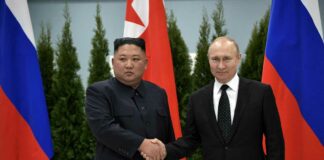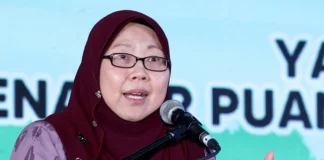KUALA LUMPUR, Oct 17 — The Health Ministry (MoH) has increased the capacity and mobilisation of assets and human resources in ensuring the public health and medical system in Sabah continue to be sustainable in containing the spread of COVID-19 in the state.
Health director-general Tan Sri Dr Noor Hisham Abdullah said the effort included doubling the capacity of Reverse Transcription Polymerase Chain Reaction (RT-PCR) laboratory tests and Antigen Rapid Test Kit (RTK Antigen) tests.
“In July, the RT-PCR test capacity in Sabah was 1,350 tests. It has since been increased to 2,600 RT-PCR tests a day with RT-PCR samples being sent daily to the Institute of Medical Research (IMR) and the National Public Health Laboratory (MKAK) using the services of the Royal Malaysian Air Force (RMAF) and Pos Laju.
“Outsourcing services to private laboratories are also being done, for example on Oct 16, a total of 4,327 tests were outsourced to private laboratories so that more screenings can continue to be conducted in the field,” he said in an online media conference via MOH’s Facebook today.
In addition to this, bed capacity in nine COVID-19 hospitals, as well as 21 quarantine and low-risk treatment centres in Sabah, had also been increased 2.5 times, from 2,129 beds in early September to the current total of 5,414 beds.
Dr Noor Hisham said the field hospital set up in collaboration with the Malaysian Armed Forces (MAF) in Tawau can house 100 beds for non-COVID-19 patients, freeing up more beds for COVID-19 patients at the Tawau Hospital.
So far, the bed occupancy rate (BOR) in Sabah stands at 35 per cent, he said.
The ministry has also the capacity of the Intensive Care Unit (ICU) beds and ventilators in Sabah that were procured through special allocations by the government and contributions from various parties, he added.
Currently, he said a total of 180 ventilators and 122 ICU beds are available with usage rates of 32 per cent and 72 per cent respectively, including for non-COVID-19 cases.
“To increase the number of ICU beds, the MOH has carried out repurposing of clinical areas in several health facilities where areas within the hospital are modified for the purpose of treatment of COVID-19 critical patients COVID-19 (modular ward ICU). This helps to increase the number of existing ICU beds in Sabah.
“Innovations to enable one ventilator machine to be used by two COVID-19 patients have also been introduced. This innovation is called the ‘ventilator splitter’ using 3D printing technology which has been implemented in several other countries,” Dr Noor Hisham said.
In increasing the mobilisation of human resources, a total of 767 MOH medical and public health personnel from various categories and service schemes have been deployed to Tawau, Lahad Datu, Semporna, Sandakan and Kota Kinabalu.
Dr Noor Hisham said more personnel would be deployed in due time, with 99 leaving for Sabah this week and another group comprising 36 public health and 63 medical personnel next week.
MOH has also made contract appointments for 1,899 health workers who will then be mobilised to states in need, especially in Sabah.
“The MOH has also intensified the involvement of more volunteers from Non-governmental Organisations (NGOs) and individual volunteers in dealing with this crisis, and so far 4,794 registrations have been received and in the process of screening. More volunteers are urged to help out and so far, two NGOs have sent 15 members to Sabah,” he said.
To ensure the continuity of services and for treatment of non-COVID-19 cases to be not affected, the Sabah Health Department has discussed and signed several agreements with private hospitals for the purpose of outsourcing.
The private hospitals involved are the National Heart Institute (IJN), Gleneagles Hospital Kota Kinabalu, Gleneagles Hospital Penang, KPJ Sabah Specialist Hospital, Tawau Specialist Medical Center and Jesselton Medical Center.
Responding to media queries, Dr Noor Hisham said so far, supply of personal protective equipment (PPE) for the use of the whole country, especially for Sabah, was sufficient and an emergency procurement application was approved on Oct 2.
He said the stock would be closely monitored through a central database and mobilisation would be carried out immediately when required.
“MOH receives many applications for PPE donations and other medical needs. The ministry accepts the donations even though there is enough stock, this enables additional stock for future use when needed,” he said.
On medical practitioners, nurses and qualified individuals in the medical and public health field who want to become MOH volunteers, Dr Noor Hisham said so far 4,794 applications have been received.
“The ministry has a set of criteria in selecting the volunteers, which is by looking at past practice and experience and aspects of health are also taken into account. Health screening is underway and they will be sent immediately. We are not just looking at short-term but mid-term and long term as well.
“The Ministry is always looking at current situations. What we are experiencing is an additional 25 per cent of cases coming from prisons in the Peninsula. We have to review the SOPs in prisons and ensure that health screening is carried out not only in prisons but also in detention centres and police lockups so that they are protected from this pandemic,” he said.
















